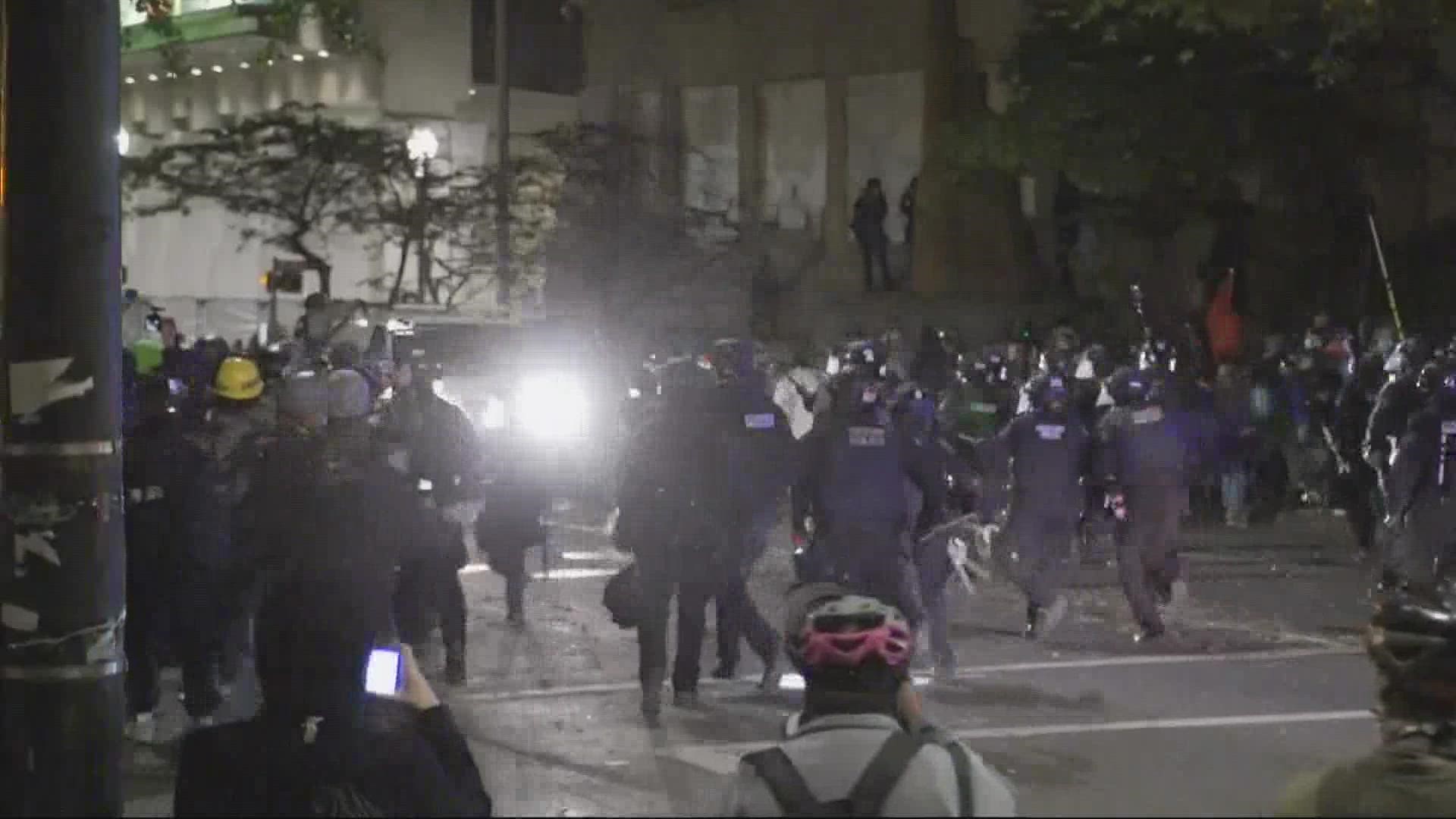PORTLAND, Ore. — Note: Video above originally aired in July.
If you were to call Oregon’s Bias Response Hotline last year to report a hate crime or a bias incident, you had about a 50% chance to reach a live person.
The hotline, which went live Jan. 2, 2020, was able to answer about half of incoming calls. With a spike in hate crimes and bias incidents, both nationally and in Oregon, the two-person office just couldn’t handle the volume.
“It was a very busy year,” Johanna Costa, a coordinator for the hotline, told The Oregonian/OregonLive. “It’s sadly appropriate for the hotline to have opened last year because of all of the social and political events our nation has been dealing with.”
Callers to the hotline in 2022 will have a much better chance of reaching a person after the Oregon Legislature approved a significant boost in funding for the service, which will be adding additional staff in the coming months. The previous annual budget for the hotline was just $43,000, a spokeswoman said, with some additional funding from grants. As of Oct. 1, that number jumps to $2 million.
In the most recent annual report on the hotline’s operation, Oregon Attorney General Ellen Rosenblum’s office found the hotline received just over 1,100 calls about bias crimes and incidents in 2020, with a 134% increase in call volume during the latter half of the year.
About 60% of the calls were categorized as bias incidents, Costa said, which usually came in the form of hate speech, slurs or mockery. About 27% were bias crimes, which included assault, vandalism and victims being spat upon.
The calls tend to follow national events, Costa said, with spikes in anti-Asian incidents around when the pandemic began, in bias incidents targeting Black people after the murder of George Floyd, and in Islamophobic incidents that roughly coincided with the attack on the U.S. Capitol on Jan. 6, 2021.
“We get calls on everything from hate speech, which is very scary because you don’t always know what the person saying the hate speech is capable of, to full on assault,” Costa said. “It causes people to stay in their homes or not go to school or their houses of worship. It’s so incredibly harmful, alienating and degrading.”
The number of complaints coming into the hotline far outpaced the 271 hate crimes law enforcement organizations in Oregon reported to the FBI in 2020, though the hotline also takes reports of bias incidents, which can fall below the criminal threshold.
Nationally, the FBI said over 7,500 bias incidents were reported to law enforcement agencies last year, again far outpaced by the more than 300,000 people who reported being the victims of a hate crime or bias incident to the U.S. Department of Justice through the agency’s National Crime Victimization Survey. Hate crimes and bias incidents are notoriously underreported, according to experts.
Nationally and statewide, the majority of victims were targeted because of their race, statistics showed, with Black people the most frequent victims.
Of those 1,100 hotline reports, about half were unanswered with callers forced to leave a message. Officials began tracking response times midway through the year and, between May 1 and Dec. 31, a quarter of the calls were responded to immediately, but nearly 70% were only responded to within a day. All but one of the calls were responded to within a week, according to the attorney general’s office.
One of the primary recommendations to increase effectiveness of the hotline was to increase staffing.
With a bump in funding, staffing at the hotline will jump from two to six, Costa said, and the office is looking to hire bilingual or multi-lingual advocates so callers can converse with someone who speaks their language, as opposed to relying on translators, as they were forced to do in the past.
“Representation is so important,” Costa said. “When someone looks like me or identifies as coming from my community, I am much more likely to trust that person.”
The hotline will also have advocates answering phones from locations throughout the state instead of from one location, and the office will be hiring attorneys and investigators to work with law enforcement agencies and district attorneys to help better identify and prosecute bias crimes when victims wish to proceed with charges.
The hotline was created as a result of Senate Bill 577, the first update to Oregon’s bias crime laws in about 20 years when passed in 2019. The law made a violent offense or the immediate threat of violence based on a person’s membership in a protected class a felony, and it added gender identity as a protected class.
Costa said she thinks the office should be fully staffed by the end of the year.
“The hotline is a place for victims and witnesses to feel safe reporting bias or hate they’ve seen in the community,” Costa said, noting that people who call the hotline will be provided with support, access to resources in their community and referrals to law enforcement, if that’s something they wish to pursue.
“This is a confidential and safe space; we are here to support you. Come just as you are,” she said.
Anyone wishing to report a hate or bias incident can call 1-844-924-BIAS (2427) or use the Oregon Department of Justice’s website.

